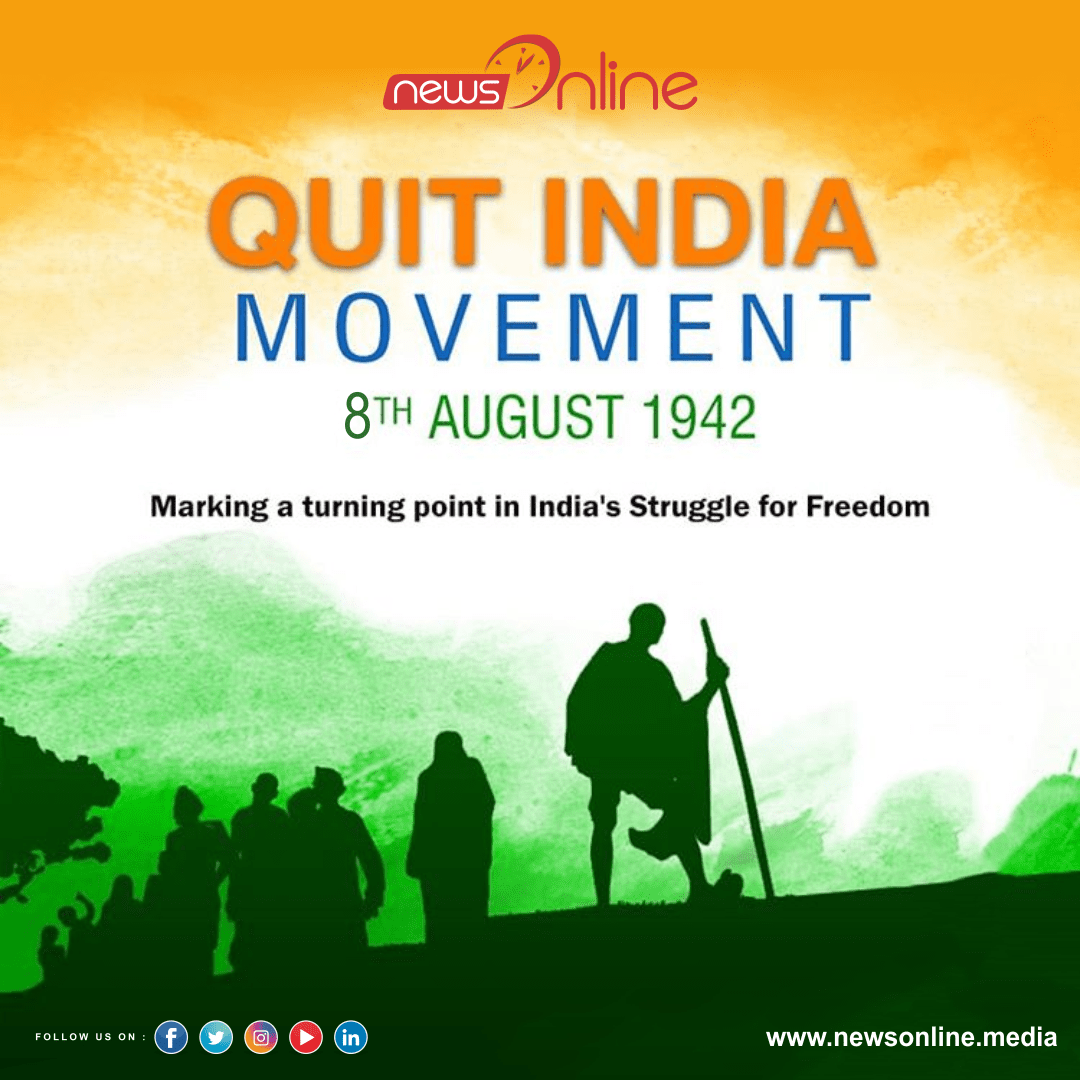Quit India Movement Day.
Quit India Movement resolution
In the early hours of the morning of 9 August 1942, most of the leaders of the congress were arrested. They were lodged in prisons in different parts of the country. The congress was banned. There were hartals and processions in every part of the country. The government let loose a reign of terror and there were firings, lathi charges and arrests throughout the country. People in their anger also took to violent activities. The people attacked government property, damaged railway lines and disrupted posts and telegraphs. There were clashes with the police at many places. The government imposed restrictions on the publication of news about the movement. Many newspapers decided to close down rather than submit to the restrictions.
By the end of 1942, about 60,000 people had been jailed and hundreds were killed. Among the killed were many young children and old women. In Tamluk, in Bengal, 73-year old Matangini Hazra, in Gohpur, in Assam, 13-year old Kanaklata Barua, in Patna, in Bihar, seven young students and hundreds of others were shot dead while taking part in processions. Some parts of the country such as Balia in U.P., Tamluk in Bengal, Satara in Maharashtra, Dharwar in Karnataka and Balasore and Talcher in Orissa, were free from the British rule and the people there formed their own governments. Revolutionary activities organized by Jai Prakash Narayan, Aruna Asaf Ali, S.M. Joshi, Ram Manohar Lohia and others continued almost throughout the period of the war.
The war years were a period of terrible suffering for the people of India. Besides the misery caused by the repression by British army and police, there was a terrible famine in Bengal in which about 30 lakh people died. The government showed little interest in providing relief to the starving people.
There is no doubt that "Quit India Movement", united the Indian people against British rule. Although most of the demonstrations were suppressed by 1944. But after Gandhiji's release in 1944 from the prison, he continued his protest and went on a 21-day fast. By the end of World War II, Britain's position in the world had changed dramatically and the demand for independence could no longer be ignored.
Thanks for Reading. Please comment me if you like my blog please share with your family member and friends.
Please join us on Please join Twitter:- @VivekCh21231874
linked in :- https://www.linkedin.com/in/vivek-chaturvedi-a222781b3
Koo :-https://www.kooapp.com/profile/vivek_chaturvediCT3JV




Comments